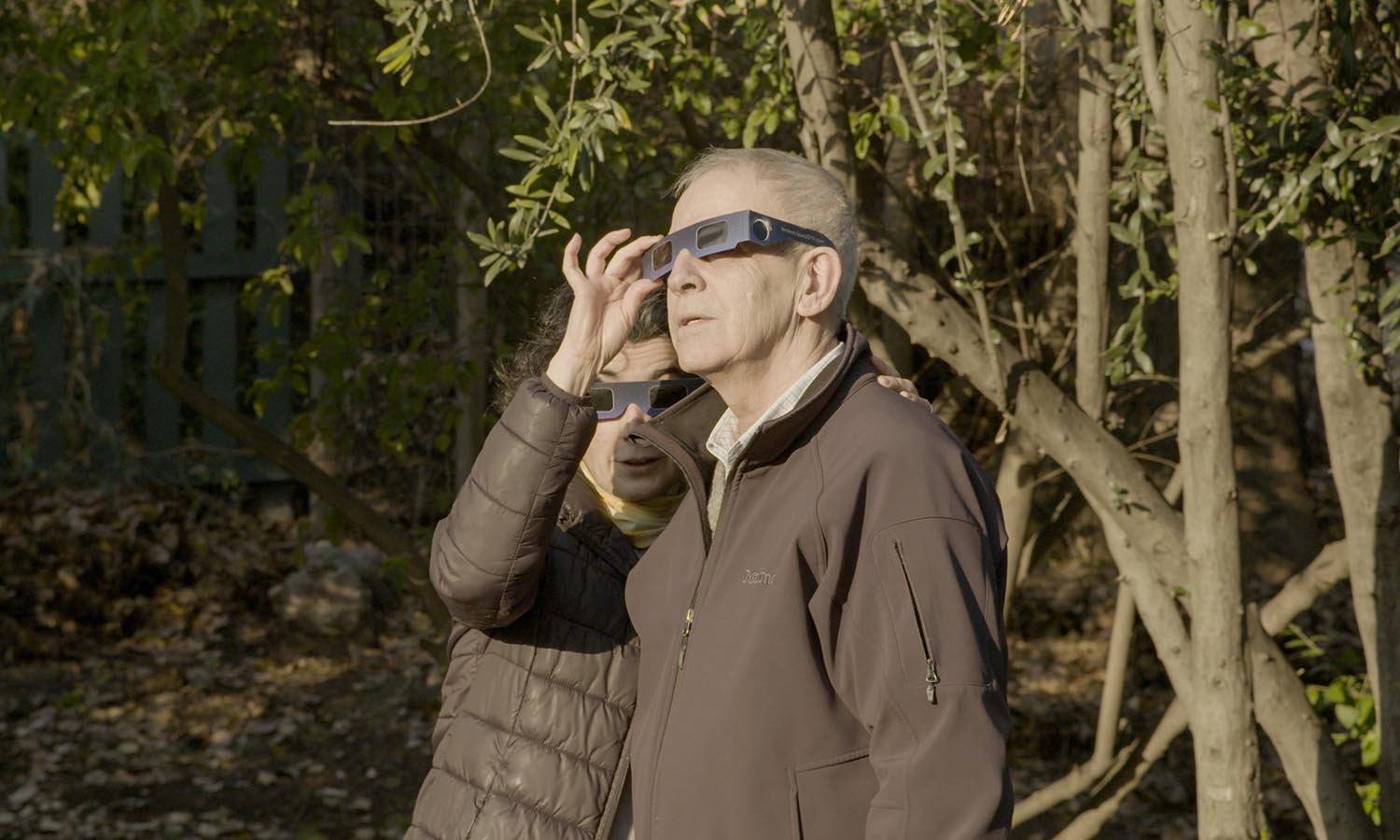The opening sequence of Maite Alberdi’s The Eternal Memory introduces the viewer to its subjects, Augusto and Paulina, at the same time as the man and woman are literally being (re-)introduced to each other. They’re both in bed but in decidedly different positions. Augusto lays comfortably while Paulina sits up, like a stranger carefully approaching something or someone whose tenderness she may not count on. She tells him who she is but also who he is. Augusto is a journalist with two children, she explains. Paulina is an actress and also his wife. This is their bedroom, inside the house they built together, she says.
Augusto seems surprised by all this information, albeit pleasantly so. This time he’s willing to go along with her version of events. The film that follows is largely a repetition of this inaugural scene. Inaugural for us, of course, but unbearably cyclic for Paulina and Augusto, who’s unable to rely on, due to Alzheimer’s disease, the thing that he’s crafted his career around: memory.
Alberdi’s film slowly reveals the personal loss of the ability to remember as inextricably linked to the loss of national memory. Through the figure of a journalist whose work centered around the quest to recognize the disavowed atrocities of Chile’s dictatorship, the director offers us a sort of thesis incarnate. The disappearance of a story is here also the disappearance of history. Namely, the fading of an archive burning slowly before our eyes—taking with it witnessed and registered accounts that the state would have done anything (and did) to keep hidden.
In that sense, there’s something almost essayistic about The Eternal Memory, namely for the way that it vividly renders the intersection of the “I” and the “we” that make up a nation. And, also, for the role that books, the very inscription of history, play in the décor of Augusto and Paulina’s house and the former’s delusions. Books are everywhere in the couple’s picturesque abode, reminding us, almost perversely, of everything that’s been written and will soon perish, but also never will—precisely because written memory is infinite memory. In his quietest moments, Augusto smells his books, and at his most distressed, it’s those books, along with his friends, that he’s most afraid of losing. It’s as if the loss of one’s writing, or the literary archive that makes up identity, individual and collective, were a destiny worse than death itself.
Eventually, The Eternal Memory becomes unsustainable as a film, alternating one too many times between its documentation of Augusto’s decline and archival footage of his televised reporting, Paulina on stage, and a potpourri of past images of the couple’s private lives, and all set to music. A repetitive structure might have everything to do with the subject matter of the film, but at one point the repetition ceases to be insightful and becomes elegiac for its own sake.
Before we get there, though, the film’s repetitiveness is fundamentally conceptual, as it embodies Chilean cinema’s most prominent motif. Namely, the dictatorship and the impossibility of ever mourning its carnage. That’s what Augusto’s reportage seems to have always been about, as he interviewed the mother of the “disappeared,” denounced barbarities, and painted a portrait of a country that was otherwise invisible to mainstream media.
It’s also what drives a brief wonderful dialogue between Augusto and filmmaker Raúl Ruiz. The two once worked together, and we’re reminded of the irony of Ruiz’s cinema so often featuring the dead given that he came from a country that never allowed the dead to die. Chilean death, like so many Latin American deaths around the same time, were disavowed as disappearances.
It’s in the fleeting instances when Augusto is prompted to remember his fellow comrades, annihilated by the state, that he recovers his lucidity most pointedly, and is overcome by it. The journalist, by now unable to recognize his own reflection in a mirror, can feel the weight of his colleagues’ corpses as palpably as when he first learned of their fate on the pages of a newspaper announcing the reappearance of the disappeared—slit throats and all.
Since 2001, we've brought you uncompromising, candid takes on the world of film, music, television, video games, theater, and more. Independently owned and operated publications like Slant have been hit hard in recent years, but we’re committed to keeping our content free and accessible—meaning no paywalls or fees.
If you like what we do, please consider subscribing to our Patreon or making a donation.




